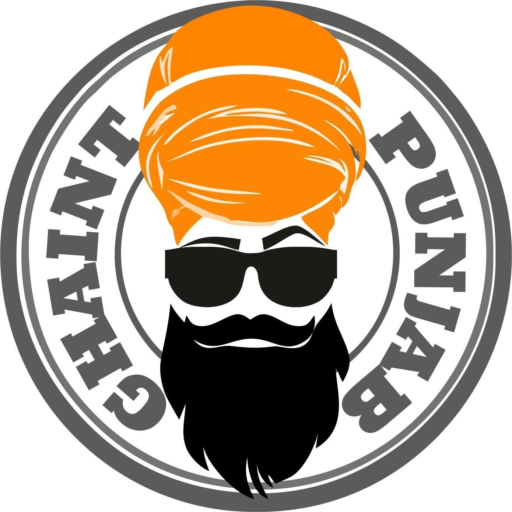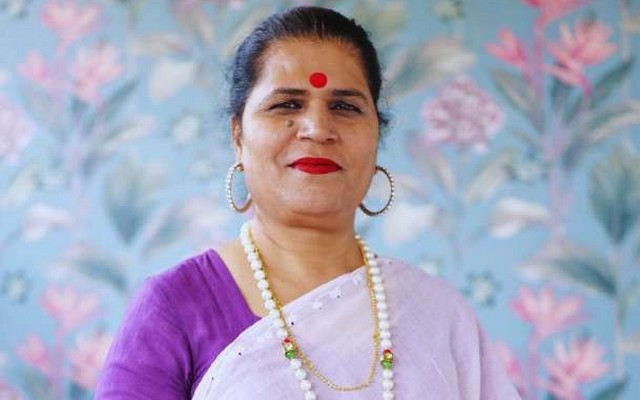In a world that often defines you before you define yourself, Mx. Dhananjay Chauhan has carved an identity not just for themselves but for an entire community that has long been silenced, stigmatized, and sidelined. As the first transgender student of Panjab University, the president of Saksham Welfare Society, and a member of the Chandigarh Transgender Welfare Board, Dhananjay Chauhan’s journey is not just a personal transformation —it’s a revolution.

“WE DON’T NEED SPECIAL RIGHTS. WE JUST NEED ACCEPTANCE.”
In 2016, when Dhananjay entered Panjab University’s Centre for Human Rights and Duties, the institution had never seen a transgender student before. Even the admission form lacked a third gender column. There were no facilities, no support, and certainly no blueprint. But where there was silence, Dhananjay chose to speak. “I wrote to the Vice Chancellor requesting a separate washroom for transgender students. Within a year, we had them built at four locations—India’s first project of its kind,” says Dhananjay.
And the milestones didn’t stop there. Her tireless efforts resulted in free education for transgender students by 2018, a reserved seat in every department in 2022, and the formation of an Anti Discrimination Committee in 2023. “I wanted to ensure no other transgender student has to feel the way I did—unseen, unheard, unwelcome.” But the story didn’t begin at Panjab University. Born in Devprayag, Uttarakhand, and raised in Chandigarh, Dhananjay always loved learning. In 1993, she topped B.A. Honours at PG Govt. College, Sector 46, and pursued multiple diplomas in Russian, French, and computer science. Yet, society was brutal.

“I was called names—chhakka, mamu, parontha—but I couldn’t leave studies. Education was my only way out.” Even so, when Dhananjay joined PU for MA History in 1993 and then the law department in 1994, she was sexually abused, harassed, and forced to drop out. In 2002, a horrific gang rape and kidnapping in Ambala nearly ended her life.
“I wanted to give up. But then I thought—how many others are silently suffering like me? I had to fight back. Not just for me, but for all of us.” Dhananjay began sitting outside government offices, writing petitions, and never backing down. In 2017, the Chandigarh Transgender Welfare Board was formed. In Punjab and Haryana, she filed a Public Interest Litigation that led to the creation of Transgender Protection Cells in both states. Employment, however, remains a key concern.
“Education is meaningless if we are forced back into begging. We need an employment policy, housing, and social security. Food, clothing, and shelter are fundamental rights.” Garv Utsav, the LGBTQ+ pride festival organized by Dhananjay since 2013, was once disowned by Panjab University. Today, the PU logo proudly supports it.
“From resistance to recognition—we’ve come a long way.” In 2018, Dhananjay was invited by Canadian Prime Minister Justin Trudeau for a state dinner. He even offered them citizenship. “I politely declined. My battle is here, on my soil. If I leave, who will continue the fight?” Despite being 55 and having achieved monumental change, Dhananjay still faces unemployment. Her struggle remains both personal and public.
“I’ve done nothing for myself. My bank balance is zero, but my courage is infinite.” Dhananjay’s advocacy is deeply rooted in historical and spiritual understanding. She explains how the kinnar or third gender community dates back to ancient times —from temple traditions to Mughal courts. The British colonial regime criminalized them through the 1871 Criminal Tribes Act, declaring them offenders by default— a stigma that lingers to this day.

“The term hijra comes from hijr—meaning separation. Like Prophet Muhammad who did hijr, we too are forced to leave our homes. But this doesn’t make us less human.” Dhananjay also sheds light on the painful practices of the past, such as castration without anesthesia, and contrasts it with today’s medically safe gender-affirming surgeries. “We may not give birth, but we can nurture, like Yashoda nurtured Krishna.”
“WE ARE NOT THE THIRD GENDER.
WE ARE THE ORIGINAL PEOPLE
OF THIS LAND,
JUST AS SACRED AND EQUAL.”
She passionately argues against terms like khusra, hijda, or tempu being used as slurs. “We are spiritual beings. Bhakti and Sufi movements were shaped by us. When Mirabai entered Vrindavan, even the saints had to rethink who really qualifies as ‘male’ or ‘female’. It’s not about body—it’s about the soul.” Dhananjay wants to make one thing clear: the transgender community doesn’t need sympathy or charity. They need equal opportunities and dignity. “If society accepts us, we’ll embrace it too. We are not beggars, rapists, or criminals. We are citizens who love our country just as much as anyone else.”
In every reform passed, in every voice uplifted, Dhananjay Chauhan’s imprint is unmistakable. From the corridors of Panjab University to the High Courts of Punjab and Haryana, her journey is an epic of resilience, advocacy and unbreakable spirit. And the message she leaves behind?
“I AM NOT FIGHTING JUST FOR TRANSGENDER RIGHTS.
I AM FIGHTING FOR HUMAN RIGHTS.
BECAUSE EVERY HUMAN DESERVES
TO BE TREATED WITH RESPECT.”


